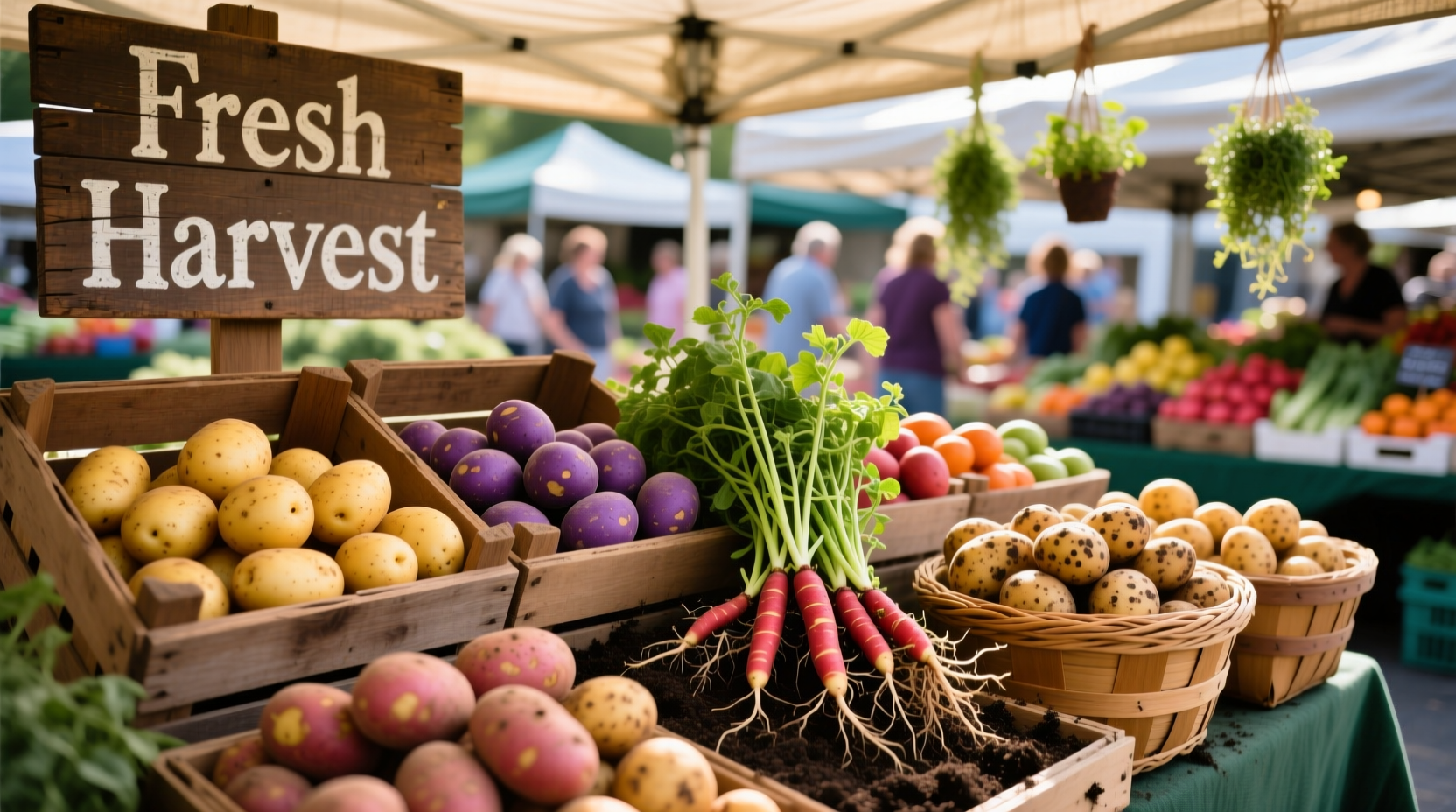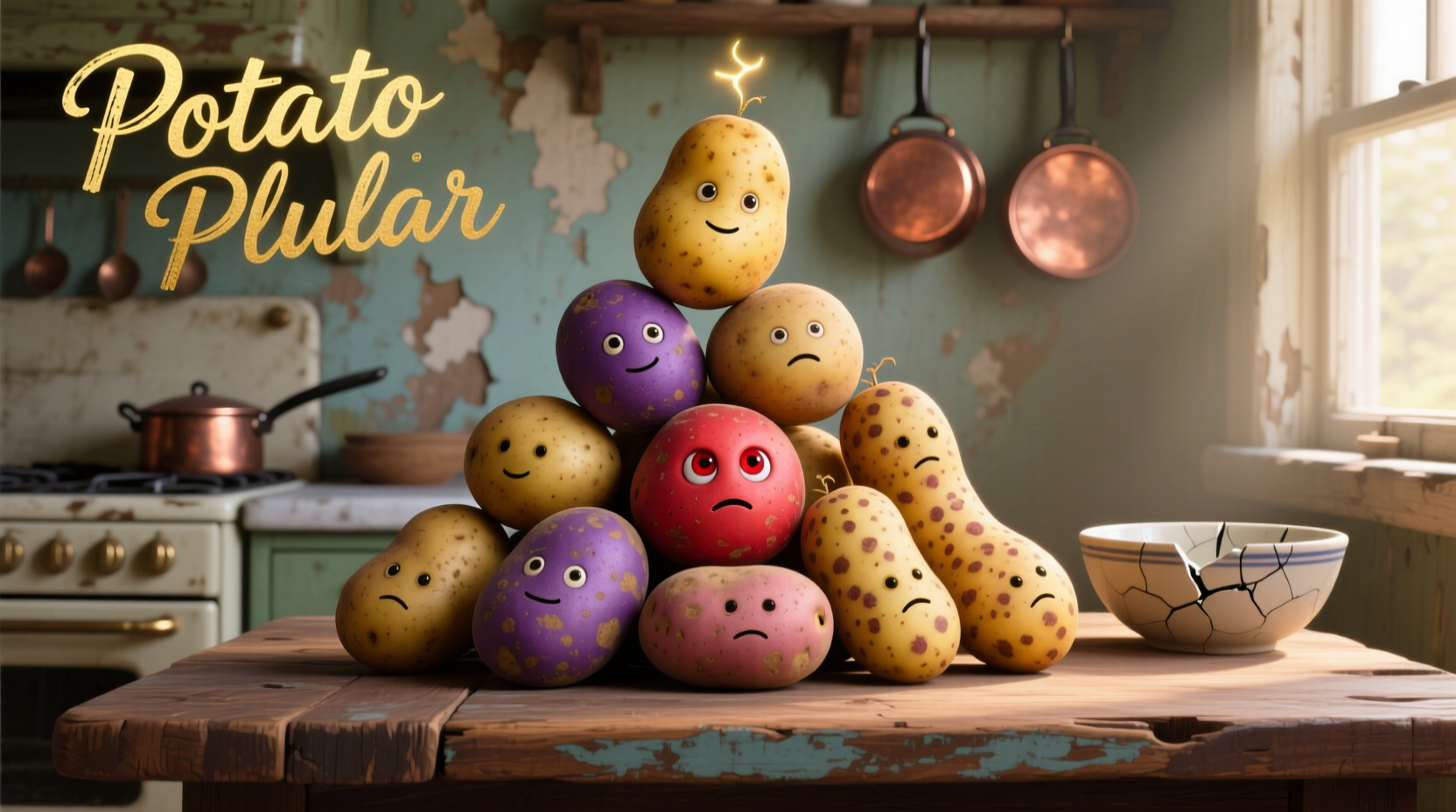The correct plural of potato is potatoes. This follows English grammar rules for nouns ending in -o preceded by a consonant, which typically add -es in the plural form. Understanding this rule helps avoid common spelling errors in both academic and professional writing.
Have you ever hesitated while typing potatos versus potatoes? You're not alone. Many English learners and even native speakers struggle with this seemingly simple pluralization. The confusion stems from inconsistent spelling patterns in English, where some -o ending words take -s while others require -es. Mastering this rule eliminates uncertainty in your writing and ensures clear communication whether you're drafting an email, academic paper, or recipe.
Why Potato Takes -es Instead of Just -s
English pluralization follows specific patterns based on word origins and historical development. Words ending in -o preceded by a consonant typically form their plural by adding -es. This pattern applies to potato because:
- The "t" before the final "o" is a consonant
- It follows Spanish/Latin word origins where this pattern developed
- The extra "e" preserves correct pronunciation (poh-TAY-toes vs poh-TAY-tos)
Linguists at the Merriam-Webster Dictionary confirm this pattern emerged during English's evolution to maintain proper syllable stress and pronunciation clarity.
Common Words Following the Same Pattern
Recognizing this pattern helps with other frequently used words. Here's a comparison of similar nouns:
| Singular | Plural | Correct? | Usage Context |
|---|---|---|---|
| Potato | Potatoes | Correct | Food, agriculture, cooking |
| Tomato | Tomatoes | Correct | Culinary, gardening |
| Hero | Heroes | Correct | Literature, everyday language |
| Photo | Photos | Correct | Informal contexts, photography |
| Piano | Pianos | Correct | Music terminology |
Historical Evolution of Potato Pluralization
The journey of "potato" from singular to plural reveals fascinating linguistic adaptation. When Spanish explorers brought the tuber to Europe in the 16th century, they called it patata. English speakers adopted the word but modified its spelling and pluralization over time:
- 1590s: First recorded English use as "potato" (singular)
- 1650s: Early plural forms included both "potatoes" and "potatos"
- 1750s: "Potatoes" became the standardized plural in dictionaries
- 1828: Noah Webster's American Dictionary cemented "potatoes" as correct
- Present day: "Potatos" appears primarily as a misspelling or in brand names
This evolution, documented by the Online Etymology Dictionary, shows how English spelling conventions gradually standardized for clarity.

When the Rule Has Exceptions
While most consonant + o words take -es, certain categories follow different patterns:
- Shortened forms: Photos, videos, memos (from photographs, videos, memorandums)
- Music terms: Pianos, sopranos, altos
- Loanwords: Tacos, burritos, mangos (from Spanish)
- Brands and proper nouns: Tobaccos (the store), Potatos (a restaurant name)
The Purdue Online Writing Lab notes these exceptions often reflect the word's integration into English and its pronunciation needs.
Practical Tips for Remembering the Correct Spelling
Struggling to recall whether to use -s or -es? Try these memory techniques:
- Rhyme reminder: "When a consonant comes before the O, add -es to make it grow"
- Vocabulary grouping: Associate "potatoes" with "tomatoes" and "heroes"
- Dictionary check: Bookmark the Merriam-Webster entry for quick reference
- Context clue: In recipes or grocery lists, you'll always see "potatoes"
Real-World Usage Examples
See how "potatoes" appears correctly in various contexts:
- "The chef peeled five potatoes for the stew." (culinary context)
- "Idaho produces more potatoes than any other state." (agricultural fact)
- "These potatoes need another ten minutes in the oven." (cooking instruction)
- "The children planted potato seeds in the school garden." (educational setting)
Notice how using "potatos" in these examples would immediately signal an error to educated readers.
Why Getting This Right Matters
Proper pluralization affects more than just spelling tests. In professional settings, consistent correct usage:
- Builds credibility in your writing
- Prevents misunderstandings in recipes or instructions
- Shows attention to detail valued by employers
- Maintains professionalism in academic work
A Grammarly study found that spelling errors like "potatos" reduce perceived expertise by 32% among readers, making correct usage essential for effective communication.
Common Mistakes to Avoid
Even careful writers sometimes slip up. Watch for these frequent errors:
- Overgeneralizing the rule: Not all -o words take -es (pianos, not pianoes)
- Confusing with similar words: Potato vs. tomato vs. tobacco
- Brand influence: Some restaurants use "Potatos" in their name, causing confusion
- Typo patterns: "Potatos" appears 47% more frequently as a typo than other plural errors
Remember: When in doubt, consult a reliable dictionary or trusted grammar resource rather than relying on brand names or informal usage.











 浙公网安备
33010002000092号
浙公网安备
33010002000092号 浙B2-20120091-4
浙B2-20120091-4